|
Natural self development has two dimensions. The first factor is relevant and applicable knowledge. The second factor is actually applying that knowledge to work on our personal state. Some people think that spiritual matters are not rational i.e. we just need to believe. Knowledge and action go hand in hand. Knowledge which will be most beneficial for us to raise our spiritual state should be our priority. Insights from that type of knowledge will help us apply them to continually raise our spiritual state in a balanced manner and hence develop holistically.
Knowledge comes before implementation, as without true knowledge, our implementation will be unnatural and faulty. Correct knowledge is important. So the process of learning and implementation is continuous and we keep growing bottom up. There is so much knowledge out there. Where do we start? It depends on our context which is different from person to person, time to time and place to place. Beneficial knowledge is that knowledge which is most relevant for us to grow naturally at the stage we happen to be in. It can be spiritual knowledge or wordly knowledge. In fact, we do not differentiate the two as they are composite to the same holistic reality -- the invisible and the visible -- two sides of the same coin. We acquire them gradually and apply them naturally to keep growing holistically in all dimensions of self development. There are spiritual masters who have specialized in this process and there are specialists in every field of knowledge who have best practices. Such facilitators need to be sought to get insights to seek the right knowledge and implement it correctly based on insights. Once we benefit from the first facilitator who specializes in a certain area we learn from the next and keep developing. We should not be compelled to haste as doing the wrong thing can have great negative consequences, if we are not careful, so we must be vigilant for the good for all humanity. When we dedicate ourselves to this path, we can develop certainty in our path of learning and implementing beneficial knowledge and it transforms us internally and externally. As it transforms us naturally, it transforms our circle of influence and everything else. Overtime when we are engaged in the cycle of acquiring beneficial knowledge and implementing it, we graduate from believing in our system of self development in our heart and mind, to naturally inculcate graceful behavior as internal development affects the external. When a critical mass of people do this, it has a holistic effect on everything inside and outside ourselves, which might lead to a completely natural way of living, solving our problems at every level, bottom up. We need to be careful in this process in terms of two factors. We do not want to be those who do not acquire knowledge and follow our whims in terms of our behavior. Nor do we want to acquire knowledge and not implement it. Knowledge that is acquired that does not lead to our self development is not beneficial. So the balance between knowledge and its implementation needs to be optimized. We need to develop a sense of fear and hope, ie “piety” in religious parlance, in terms of not disrupting this critical balance for an imbalance in ourselves has implications for global disruption. The need for doing the right thing and personal accountability in terms of our final spiritual state, compels us to keep this balance till our final breath out of fear of disruption as well as the hope for the potential for the highest spiritual ascension. This makes us fly higher and higher. This is our motivation to overcome the hurdle of seeking correct knowledge based on the right framework and its proper implementation for the service of all humanity. We should not rush it nor be distracted to realize it well, God willing.
0 Comments
We find ourselves in a world that is increasing becoming intolerant. If we had an opportunity to talk to our grandparents, we might have discovered their world to be more tolerant than ours. Today, we have people perdicting the doomsday scenario, no matter what religious/social/philosophical thinking they might have. Conflicts are increasing globally -- the Arab-Israeli conflict has exploded recently and is spilling over to neighbouring countries and the populations in diaspora globally, creating security issues even in countries which are considered tolerant. We need to understand this phenonmenon holistically at a deep level and come up with a solution that will turn this threat of today to the golden opportunity for our global population, no matter what our beliefs.
If we consider religion, it might have various definitions, but we choose to define it as a set of beliefs and way of living which would help us fully develop our human potential naturally. Every religious tradtion or social philosophy whether traditional or secular is motivated for such positive ends. If some people follow a different paradigm, that would lead to negativity, criminal or in religious parlance purely evil or Satanic behaviour which positive people want to shun universally. It is from such understanding of relgion that we have such contemporary famous personaliteis as the Dalai Lama, Mother Theresa, Mahatama Gandhi, Albert Einstein, or Muhammad Ali Clay who while imbibing and living their faith fully had compassion for all humanity. Whereas the prophets, mmessengers, teachers, spirtual guides sent by God to different communities of the world throughout history also taught them to develop themseves, while loving everyone despite their persobal beliefs. The consitituion of great nation states especially that of the New World like the United States and Canada are based on the same basic ideals as are the Rights of Man. This motivation is universal to humanity. Yet when we talk about religion today, it is associated with intolerance in our secular world due to our misunderstanding of the function of religion. Our history is plagued with religious wars, some being very bloody, so much so that we now associate religion with violence, oppression, and intolerance, whereas this is not so as we have explained earlier. So how can we explain this contradictory facets of religion. If we consider the Crusades, which were a series of military campaigns in which Christian volunteer armies from various states were motivated to liberate the Holy Land from the Muslims and lasted a long time. The army volunteers were generally motivated by their faith, as too were the defenders. Nevertheless, we find the paragon of their ideals in their leaders, i.e. Richard the Lionheart and Salahudeen Al Ayubi, who while imibing and living their respective faiths, were ideological opponent, but nevertheless were legendary in their kind and chivalrous treatment of each other. Thus, we see that deep understanding and practice of faith, produces the ultimate ascension in spirtuality in man to fulfil his destined status a God's viceregent and best of His creation, whereas less knowledge and practice of faith produces followers, who might carry out actions, in a manner not enshrined in their faith, if they are not led by true and responsible leadership. Having established the concept of relgion, we now need to understand it in the context of today's world to better understand why we are precipitating towards global intolerance in the name of religion, even though the esssence of our faiths teach its opposite. The secularization of Europe after the Dark Ages, started after the European Enlightenment, by the works of philosophers -- many of whom had studied in universities in the Muslim world or the works of Muslim scholars from the Golden Age who had reconciled fatih with science -- could not reconcile the then Church doctrine to the development of knowledge, as the religion -- as they knew it -- was not based on reason, but on blind faith, although this is not universally true for all relgions. Thus we find ourselves in a world which has benefited from scientific developmenet, the industrial revolution and its fruits, though in an unbalanced manner, with the spiritual dimension being ignored. The results of this methodology were tremendous, and the pace was quick, although the results were not natural or balanced, which resulted in us deviating from our nature, while developing in more material or tangible ways, resulting in the domination of Eurpean civilization, culture, and secular ideas globally through colonisation/neocolonoism in the third world, and subjugation of native populations and enslaving Africans and its legacy in the new world. The propagation of these ideas as a solution to world problems is systematically carried out with good faith without understanding consequences which have led to tremendous ethical, social, economic, political, and environmental problems that we find "unsolvable" with our current way of thinking. We are only now coming to realize the gravity of our actions, e.g. we realize what we are doing with our environment, how we destroyed native cultures, our mistakes in forcibly implementing our agenda in other countries politically, the inherent injustice in our economic systems, our inability to practically live up the human rights ideals which we theoretically cherish, our inability to reconcile the spritual with the mundane in a meaningful manner, etc. The true practice of no monotheistic Abrahamic relgion, whether Judaism, Christianity, or Islam, a polytheistic faith based on scriptures like Hinduism, Zorastianism, etc; a traditional social philosophy like Buddhism, Confucianism, Taoism, etc.; a man inspired faith based on learning and self development like Sikhism; or any positive secular philosophy teaches hate, oppression, or intolerance towards others, yet this is what we are heading towards in the context of the present secular world in which many people have only a mediocre undestanding and practice of their faith and perhaps a mediocre understanding of the world we live in today, unlike those contemporary successsful people who practice their faith well and love humanity who we named above and many like them we may not know about. It is important to be very careful in our actions and words to capitalize of this opportunity to make it the best for everyone as well as complete natural development of every aspect of our life (scientific, work related, health, social, economic, political, environmental, etc.). We need to STOP, and take stock of where we are and if we want to really do something positive which all faiths and positive ideologies enjoin. If we do not do so, intolerance will blow up and we might self-desturct due to our collective ignorance and lack of self control. Let us put aside our idea of which religion/philosophy is the most optimum for the global village we live in and let us stop forcing it on anyone. If we realize any truth in the analysis of our situation we have outlined above, then we also realize the solution needs a lot of deliberation and hard work to re-establish the balance in our way of thinking and behaving. Every religion/philosohphical way of life has elements of this balance which is being stripped away from our individual civilizations as we were becoming a global secular civilization (a global village). Samuel Huntington had written about the competition of disparate world civilizations in the late 1990s/early 2000s, but we are at a later stage now. We are at the stage of synergy and mutual cooperation is a global human civilization which has realized the need to balance their development to the natural way when we face the catasthropes due to centuries of unnatural development and its forcible propagation globally by the dominant civilization. In order to avoid the doomsday scenrio or Armadeggon, we have to become responsible globally, realizing that if we get it right, we can ascend together as humanity to our full potential, otherise we might all self destruct. We also need to realize that this balancing might take a lot of time and effort, so if we try to rush things we will spoil it. We need to deliberate on it and focus on doing the right thing no matter what. The need to show that our faith tradition/philosophy is the best has caused a lot of blooshed in the past. Human history is full of it even though religion is not about that so we need to be very careful. Just like an electrical control system tries to adjust to environmental conditions to come to a new state, its errors i.e. deiviation from the target state takes time, as the errors (deviations) gradually die out, the same we we need to practice self control and realize that even if the best result for all humanity does not happen in our lifetime it does not matter. If we have a global agenda based on the right principles, then we can all work on it being faithful to our own religious tradtion/development philosophy. Each world tradition or philoosophy needs to carry out deep and pragmatic reseach about how the spiritual truths from their traditions can be applied to our current world to give it the spirtual dimension which it has been shedding, while the zealots (followers without much knowledge but want to be true to their beleifs) must be led responsibly to make sure that this opportunity is not wasted and humanity reduced to its lowest common demoninator. This research has been taking place to some extent or another in every tradition, as every faith/traditional phiolophy finds challenges to grow its spirit in our secular global world. At the highest level, the intellectuals of each tradtion meet and discuss such issues in world bodies and inter-religious organizations in a collaborative way. We need to extend such spirit and outlook to the rest of the members of each ideology. Why can't we listen to a differnt idea, entertain it, and accept or reject it, without having the need to deliberately silence, convert, or oppress someone like those who represent us? If every phiolosophy implements their finding in our present world while respecting others, we will benefit from the wisdom of all ideologies, as indeed their is wisdom and goodness in all human traditions, without having a need to forcibly putting any thought down as a form of "competition". It is in the common interest of all humanity to benefit from our shared wisdom, if it aligns with our framework of belief. If we are confident of our philosophy, over time its truth or most optimum nature will emerge regardless, so why are we so defensive about it? If we let the natural process evolve, the best or most optimum human way of life will emerge regardless. When it does, those who wish to adopt it for their self development, will be free to do so, if they wish and those who do not, may not, if they wish. As for co-religionists, to deliberately malign someone, create problems for them, insinuate misinformation about them to the masses while knowing/not knowing their context and using ideas presented by them for personal benefit or to force them to an option that will compromise their faith, believing a narrative about them we have not confirmed, is highly unethical and against the principles of relgion. How can we justify deliberately making someone who shares the same faith to compromise it for our own benefit or turning them against their own innate nature? We would never do such a thing if it was not in secular context of the world we live in. In many traditions, we have a concept of a group of elite people controlling the world. Such consipiracy theories do not exist. Only God controls the world, and if we study and implement our faith/ideology without forcing people through unethical means (which might be legal), to adopt our way even if they do not wish to do so then this will lead to corruption in the world and perhaps bad consequences globally we all wish to avoid. In civilizations untainted by secular ideologies like that of Al Andulus (the Iberian peninsula), Muslims, Christian, and Jews lived, collaborated, and practiced their respective faiths freely for 800 years. Similarly, there was little religious tension in pre-colonial / pre-partition India which was the most wealthy civilizattion at that time. People of all communities flourished together, each free to practice their way of life. It was the lack of true understanding and practice of our faiths that led to intolerance based on "divide and conquer" philosophies of insincere leaders who wanted personal power as opposed to doing the right thing. For the most part, in our secular world, religion has unfortunately lost its essence and is being used as means to group together to safegaurd personal interests. In order to realize the dreams of living the best way we all can, we need to overcome such myopic thinking to rise above our baser selves. Religion is a beautiful thing, which gives us deep understanding of reality and solutions to our problems, but due to our present context, most of us are unfortunately using it for only competing and putting down each other. We need to address religious/cultural/ideological rivalries which have emerged in recent history and transform them to help us all be better people. Just like our best corporate leaders are learning to use diversity of people and ideas for the common good, we need to apply similar principles globally to issues which were not there before we lost our spirtuality. Politically, "unsolvable" issues like the Arab Israeli conflict, the contention of disputed areas whether Kashmir, Nagarno Karabah, etc, the need for influence and power in the newly independent former Soviet satellite states, the rivalry between different sects with religions like Sunni and Shite Islam which only became an issue in the 1980s, or any such matter which divides us as humanity needs to be reanalyzed. The role of the United Nations and its agencies as propogator of the secularizing philosophies of development as directed by the Big 5 who only have the veto power on resolutions after the aftermath of the Second World War, needs to be reanalyzed based on a better vision. We need to relearn to live in peace with ourselves and with others while being true to our own beliefs and develop according to them to our full potential. We have come out of the colonial era, and we are coming out of the neocolonial era and we can all benefit if we commit to do it right, in Sha Allah, God willing. Realize my brothers, and friends that fear of poverty is one of the diseases of the heart that has multifarious consequences in terms of perspective, personal growth, health, family and social stability. It is caused by trauma, where the suffers have gone through immense difficulties so much so that the use of their faculties get affected and rather than using them to figure things out or keep learning new skills, they become dependent on others. Fear of poverty grips the mind so much that the sufferer is unable to figure out anything on their own, but develops coping mechanisms which become instinct. Rather than valuing others and giving them their rights, all principles of social ethics become irrelevant due to the mind which is gripped by this fear and unable to figure things out. Their survival mechanism is based on subjugating others to their service who too might develop the same phobia. It is at this stage that people sieze to see principles at work in life which are independent of time, place, and culture as taught in the Quran and Sunnah. Rather, they develop a deeply communal mentality, in which people group together for the sake of survival, labeling everyone else as "bad" and themselves as "good". At an individual level, such people can sell their mothers, or enslave their progeny if needed due to their severe need to survive. At a neighborhood level, gangs appear. At a town level, we have fans who support their football team blindly. At a national level, this can develop into xenophobia. At a global level, this is what secret societies and government secret services practice. It is vital to have mercy for the suffers of the fear of poverty as we have mercy for all sufferers of illnesses. Be kind to them without them controlling us. Avoid getting angry with them, but rather sympatize with their malady without it affecting us. May Allah cure every patient, creating a world in which people instinctly behave the way they were meant to behave, at harmony with themselves, nature, and everything around them. It is practically very difficult for suffers from this malady to recover if this has been their condition for a lifetime. The important thing is to forgive them and keep our boundaries from them just in case they might try to pull us down with them, as that is the only mechanism they know for survival and use it instinctively. PS: Lucid Eloquence is contemplating using a more versatile publishing platform to continue blog posts as it has many features to develop social influence at a larger scale. Do share your opinions as feedback is vital for continuous growth.
What is the difference between morality and etihics? Morality is a personal moral code of good, while ethics is that which is accepted universally. Whereas morality might be different from an individual to another, but ethics is what might be common all members of a profession like medicine, law, engineering, or social work. When it comes to professional ethics, especially medical ethics, we need to be very careful in safeguarding the right of patients by scrutinizing our actions so that we work based on universally accepted values of our profession. In terms of mental health, perhaps sometimes, professional ethics might not be so well adhered to as we may want it to, because of the unique stigma attached to mental health patients. Thus, diabetes or high blood pressure patients might not be considered as negatively as schizophrenic patients, for example.
The fact that mental health patients, at some point, may lose their ability to make best judgements about their own health and might lose the right to make decisions about themselves, unlike patients with physical health issues, gives the treatment team the "license" to decide or influence their health decisions. This issue of independence is a very sensitive issue in mental health ethics, which is unique for it. Mental health ethics needs to ensure that it is not abused by subsitute decision makers. Sometimes, mental health patients have a lot of false hype associated with them. They might come in with exaggerated reports about their past activities from family members, social media, community, or news sources. The treatment team needs take such auxilliary information wtih a grain of salt, so that does not taint their judgement in terms of any prejudice or personal bias without interacting first hand with the patient. Before making judgements and decisions, they should soak up all the information after spending time observing and engaging with the patient for a significant time (perhaps at least 2-3 weeks). The nature of dependence when it comes to mental health, means that there is always the possibility that other sources of information (from caretakers, neighbours, and authorities) might be biased considering that they might have something to gain from the vulnerability of the mental patient and their situation. In certain situations, the social hype might get the better of them in terms of the their judgement. Sometimes, societal pressure is too much for mental health workers to uphold professional ethics when it comes to certain stereotypes. They might end up believing half truths, distored information, and false propaganda. Thus, they end up making judgements and decisions after 15 minutes of interviewing the patients, based on superficial cues from their manner of speech, appearance, and desperate circumstances in which they come in for treatment. In such situations, whatever the patient says bears little weight in contrast to what the treatment team "thinks" is true as the element of trust is missing, unless the patient manages to regain their trust over time. Many mental patients lose their independence to their abusers due to a lack of proper respect to mental health ethics by practitioners who might lack proper judgement. Such societal bias is always present due to some negative connotations associated with certin groups of people. With hindsight, we can better appreciate how Japanese American citizens were mistreated after the Second World War or how McCarthyism caused innocent citizens to be "labelled" as Communist sympathizers in the 1960s, and how someone trying to practice Islam holistically and beautifully, might end being labelled as a "fundamentalist", with mainstream media churning out blockbusters and news reports laced with Islamophobia these days. How can we truly "know a person", unless we travel with them, financially deal with them or live with them? So unless, the treatment team has the luxury of getting to really know the patient as an inpatient over a prolonged period, it becomes very difficult for the mental health patient to reestablish trust and regain their independence. A rational and conscientious treatment team, realizes the real issues at stake in a mental health patient's history, and has the courage to reverse judgements when they realize their mistakes. Mental health ethics entails realizing that God ultimately knows the patient the best, then the patient has knowlege about themselves (although mental health issues can cloud self awareness). It is only after God, and the patient, that others have insights into the mental patient's situation. Nevertheless, they are human and their reports are naturally biased based on their own role in the patient's mental health. In Cognitive Behaviour Therapy (CBT), we learn how to break out of vicious cycles of negative thoughts, negative behaviors, and negative emotions. The way to do that is to change one's thoughts, behaviors, and emotions from negative to positive. When we stop anxiety, fear, and negativity, we can substitute them with positive thinking. The best way to engender positivity is to have positive short term, medium term, and long term goals. An example of short term goal might be to wake up on time in the mornings, that of medium term goal might be to develop a habit of writing a daily journal, while that of long term might be to become an international journalist. When we have positive goals and a systematic program to achieve them, we can break the negative vicious cycle and go into a positive cycle of thoughts, behaviors, and emotions. There are two ways to break out of a negative cycle - through changing our thoughts or through changing our behaviour. The result of which is a natural uplift in our emotions. It is important to have the right intention to do those good deeds that lead to positive goals. If the intention is selfish or insincere, mental health issues will persist in the patient. Only when we do good deeds and pursue worthy goals for holistic good in the right way (rather than pursue personal goals in an incorrect manner), i.e. what we call "the pleasure of God alone", can we truly break out of our mental health disposition. Care needs to be taken that the process of breaking the negative CBT cycle is done in a balanced, gradual, organic, and well thought out manner, otherwise it is easy to fall back on negative patterns, with cyclic episodes of negative vicious cycle in an unorganized, unsystematic, and sudden manner, we end up observing bipolar symptoms in patients, with cyclic episodes of mania and depression. So proper planning, deep thought, and organization, free from insincere influences are essential to break out of the vicious cycle. Thus, social boundaries our important for recovery. One way to ensure that the bipolar characteristics do not manifest themselves in the patient on breaking the negative vicious cycle is to do good deeds and to set goals based on SINCERITY (genuine holistic good done for the sake of God), as mentioned earlier, pursuing them in a gradual and organized manner free from insincere negative influences. We are all familiar with what "sincerity" means. We are sincere to our friend if we do or say things with their best intent, but we are sincere to our greatest benefactor, God, when we do things primarily for His pleasure, not caring whether our actions might displease His creation if it means that those actions will please Him. "Sincerity" means doing things with the best intentions for the holistic good that God wants from us. When good deeds lack Sincerity our breaking out of the negative CBT vicious cycle might not be successful and we can relapse into negativity. So proper planning, organization, with SINCERE good deeds, sincere short, medium, and long term goals, with the best of intentions, keep strict boundaries in terms of negative influences is needed to successfully come out of our mental health symptoms to become a better version of ourselves, God Willingly.
Our world is full of paradoxes of our perceived realities. Perceived realities depend on several factors based on what we consume -- our media, education, social upbringing, role models, our social circles, organized religion, our food, etc. We hear so many voices around us and form our perspective of life. Nevertheless, there is another voice - the voice of our innate nature. Yes, the conscience that God instilled in each of us with the precognition of all realities we will ever experience. Yet He did not leave us blind and wandering to uncover our inner light of guidance. He sent spiritual guidance through the Scriptures He revealed to His chosen Messengers, all of whom are our teachers to discover and live the life worth living that is unique for each of us, through learning, personal observation, and self development based on natural principles of success common to all humanity. In our contemporary world our dialectics (concepts that seem the opposite but may be true at the same time) define us. Centuries of decay, decline, waning, and waxing of the Islamic World since the Mongol sacking of Baghdad when Muslims lost essence of faith-inspired intellectual and spiritual pursuits in favor of false pride in cultural heritage - customs, language, cuisine, arts, history, and traditions, without practicing the same principles of human success that made their forefathers great. Thus faith gave way to cultural decadence, stagnation, and capitulation in the form of centuries of European colonization of the Muslim world. Christian work ethic, although based on a false belief system of human divinity, trumped the decadence of non-practicing Muslim lethargy. A people raised on baked potatoes and beans, reciting Shakespeare's sonnets, who love to camp in the open countryside for recreation were able to mesmerize a Muslim population relishing their biryanis and kababs, reciting works of Saadi and Mutanabbi, reclining on opulent cushions and carpets. It was a classic transfer of power from a stagnant civilization that had reached its zenith, and forsaken the principles of human success that Ibn Khaldun eloquently describes his Muqaddimah. A vigorous people practicing a distorted faith, glorifying a Spartan lifestyle, were able to displace a people who gave up their practice of their true faith for the love of luxurious living. The mid-20th century saw the masters begin to relinquish their colonies physically but they left a system and an elite class of colored master class in Muslim lands who were more "European" than the Europeans. Nationalism -- the curse of the 20th century -- saw Muslim nation states glorify their jahilli past -- thus the Egyptians are proud of their Pharonic civilization, the Lebanese of their Phoenician heritage, as the Shah's countrymen were haughty of Persepolis -- the capital of the Achemenid Empire - before they perished in the dust of the Iranian Revolution. This system of "delegate colonialism" is still so strong that one of its pawns - Pakistan's President Ayub Khan - had to write a book deliberately titled "Friends, Not Masters" to highlight the issue in the 60s. Fortunately, nationalism and Muslim cultural chauvinism is slowly giving way to a principle-based struggle that involves all of humanity -- independent of a particular culture. This is evident how the Palestinian struggle, a catalyst to unite Muslims globally, was led by nationalistic organizations like the Palestinian Liberation Organization (PLO) has slowly lost credibility and popularity in face of more genuine Islam-based movements. The emergence of genuine Islam-inspired leadership in Turkey, Pakistan, and Malaysia who are not sellouts to their Western masters is a breeze of fresh hope in terms of the spiritual reawakening of the Muslim world. The lack of Arabic comprehension among their populations is still problematic, as we find the ignorance of nationalism and materialism still cloud the vision of their general population, especially the older generation. The strange marriage of Islam, nationalism, and material pursuit has created a strange philosophy that is alien to the innate human nature. It is the failure of Islamic thinkers and social architects to lay out a pragmatic contemporary way of life that is aligned with the original Islamic ethos, that we find the paradoxical experiences in contemporary Muslim world. Whereas, the leadership of the emerging non-Arab Muslim world has started to assert its independence of preference for natural principle-based way of life for itself and the world, the Muslim Arab world leadership is still tightly controlled by their masters with perhaps the exception of Qatar, Kuwait and Oman. They still simply carry out social policies architected by Western think tanks for selfish national interests irrespective for the harm they cause to natural principles globally. In contrast, the West has transformed from its colonial Puritan philosophy to a more secular atheistic outlook in which social policy is based on animal behavior to keep controlling the world masses through consumerism, sexual promiscuities, musical indoctrination, substandard educational policy designed to accept Big Brother world regime, propaganda-based media, and delusional promises of "freedom" in the guise of Western concepts of democracy and liberalism. If we consider this stage of Western civilization, we realize the paradox we exist in. On the one hand Western religion is irrational and not based on natural human principles of success like Islam. On the other hand, social experimentation has resulted in disasters like the breakup of the family, individualism, alcoholism, substance abuse, sexual deviance, death of morality, relativism, and crass materialism. It is a classic result of dalal -- misguidance, but how can we blame anyone? If we are born as part of the non-Muslim population of the the West, it is perfectly rational to reject religion in favor or atheism, agnosticism, and general spiritual confusion that we see today in the West. How can someone base their beliefs on mental gymnastics of 3 in 1 and 1 in 3 -- with a god being born and dying at a specific epoch in history, for taking away the responsibility of people for the own self development -- as he already died for the mistakes/sins? Thus, how can we follow a religious tradition which opens the door to moral corruption wide open resulting in whole scale misguidance, unless we are open to investigate other religious traditions for the Truth? Yet the same social Western experiments that have resulted in a dysfunctional human society at home has been propagated globally to the Muslim world through Western stooges in Muslim national leadership. This leaves the common Muslim challenged in our day and age to live consciously based on principles that are intrinsically part of them, but deliberately subverted in the world they live in. Unless, they are ready to live a life free of materialistic love, independent of the overwhelming global social script, and influence of those who wish to use (abuse) them for their own materialistic pursuits, they cannot be true to themselves and their reality. This can be achieved through zuhd, learning, contemplation based on the Quran, and adopting Prophetic methodology for self development and development of others to revert to natural principles of success. When a critical mass of humanity does that, positive change will eventually ensue, God willingly.
Among the natural therapies for good mental health and longevity, in general, is healthy social relations. Did not mommy always tell us, "do not talk to strangers?" But building relationships with those we do not initially know, is part of the recovery process. Nevertheless, there are some best practices for mental health in terms of socialization, that might help overcome barriers and be a source of strength, comfort, and lasting relationships rather than be a source of fear, hesitancy, or negative competition. If social relations are not based on collective attempts in building each other up for success genuinely from the heart, rather they put each other down, making people feel bad about themselves, considering each other threats rather than opportunities to get better then such social relations are detrimental. In contrast, the opposite is the key to better health recovery, not only for the patients but for good positive environment for the whole society. Sometimes, we think that when we talk to someone, we "need" something from them. This is not necessarily true in healthy societies, where it is just a norm to greet complete strangers pleasantly, whether we meet them on the street or in the market and to ask how they are doing. They do not have to have the same race, religion, national origin, native language, etc. Just being human is enough. Is there not an instinctive urge we feel in playing with that random cute baby in the doctor's waiting room or the grocery store checkout queue? To think that we will only communicate with people we have a "need" for seems to be a very deliberate thought. Rather a person on a path of growth and self development may habitually interact pleasantly with a wide range of people with no particular motive. In general greeting the janitor as well as the Prime Minister, should be without apprehension. In some societies, it is considered a favor upon us if we get the opportunity to "help someone". If we eat alone, we might develop selfishness or other negative characteristics or emotions, eating more than we need to. In contrast, when we eat with people or share food, we develop many positive characteristics in our personality, not being engrossed in ourselves. Rather, we think about everyone's wellbeing in holistic development. Thus, it is indeed a "favour" others do unto us when they allow us to share our blessings with them. With mental health, its stigma is part of its harm. In terms of social interaction, when the caregivers are both insecure and uneducated in mental health ethics, they disclose personal details about the patient to everyone in their social circle forcing the patient to interact with only the caregivers and depriving them of a healthy independent social life that is vital for their recovery. In some circumstances, when the patient is throughly abused through such backbiting but is serious about success, it might be better to create boundaries among them and their abusers so they may develop an independent social life which is essential for recovery.
There are many ways to teach and pedagogy has various methodologies depending on the context and the abilities of the students and teachers. Let us momentarily consider a scenario in which everyone is a teacher and everyone is a student, whereby there are no egos at stake. People learn from the lowest person in society just and they learn from the highest. This is the glimpse of learning and teaching according to the Prophetic Model. The prophets were humans like you and me. The only thing special about them were that they were inspired more by God to live life based on natural living. So they study learned through insights and formal study of the Scriptures, God sent to "understand" their context what they needed to do in it. This became the mission and they inspired those around them to do the same. The prophets who were given a new, fresh, divine Scripture were called "Messengers of God". A Messenger is always a Prophet but a Prophet is not necessarily a Messenger. Among the most famous messengers we know of from the Islamic perspective are Abraham (AS), David (AS), Moses (AS), Jesus (AS), and Muhammad (SWAS) who were given the Scrolls, Psalms, Torah, Gospel, and the Quran respectively. In fact, the Quran is not really a book but it is a compilation of recitations that were inspired to the Prophet of Islam (SWAS) over 23 years of his mission to humanity. When we recite the same Scriptures, the same way, and try to live our lives modelled on those of the Prophets and Messengers we keep learning and teaching like them because our thought pattern become similar to theirs, which were the most optimum as planned by God. Thus we learn through insights but our knowledge is based on our formal study and insights. With a lack of formal study, insights cannot by themselves fill in the gap completely. Nevertheless, much research into the factors in formal fields of study can be a team of "experts" and people of insights with similar interests.
Learning and teaching is a continuous, dynamic, and fulfilling endeavour that everyone undertakes. There are no egos or status issues which should prevent us from learning directly or indirectly from even a child, nor teaching even a Prime Minister. The number of mental health maladies and those who are affected by them is increasing, despite the development and progress in medical sciences. Since the 70s and 80s, the use of psychotropic medicines has been the standard way to address such psychotropic medicines which are on the rise with the progress in "modern" standards of living -- some of which might not be the most balanced or at least might not be lived out as such by more and more people globally. Big Pharma and those trained in the specific field of psychiatry (treating mental health through only medicines), work closely together. We need to think positively about people's intentions and those of companies and organizations bringing medical solutions to the sick worldwide, but sometimes in our rapacious ego driven world, sometimes we, as people, might discredit the greater good for our own personal good. Sometimes, if we are a "hammer" all problems seem like "nails" to us. We need to consider why such medicines are so expensive and so very difficult to wean off to better understand the profit making factors behind modern psychiatry. We acknowledge the use of psychotropic medicines and its proper use in treating disorders, but at some point medical ethics need to be observed more carefully to ensure that we never abuse the responsibility that society has entrusted us with. It should never be about our personal ego, but always about the greater personal good that psychiatry should be practised -- for the good of the patient themselves, especially those who have indicated to be treated voluntarily. There have been tremendous changes in psychiatry recently. Dr Peter Levine has written much about these particular topics in his bestsellers which mental health professionals should study to better understand how to evolve their practices with the best trends in psychotherapy. Many trained psychiatrists are already changing their practices by incorporating therapeutic techniques like cognitive behaviour therapy, dialectic behaviour therapy, personal/spiritual development, holistic living, and generally understanding the "meaning of life" to develop the best versions of their patients possible using a spectrum of different natural treatments. Many are teaming up with other specialists in branches of knowledge they might not be as familiar with to jointly make decisions about the treatment of their patients and their way forward. Dr Kelley Brogan is one of many such trained psychiatrist from New York, who turned into a holistic healer which is an increasing trend in psychiatry. After formally studying psychiatry she developed herself to holistically treat mental illnesses through a gamut of natural techniques including medicine, if needed. One of her objectives is to wean off her patients from psychotropic medicines if they are not absolutely necessary so they start living as "normal" people not dependant on medicines or other people.
|
AuthorWrite something about yourself. No need to be fancy, just an overview. AuthorOzair Khan Archives
August 2023
Categories |
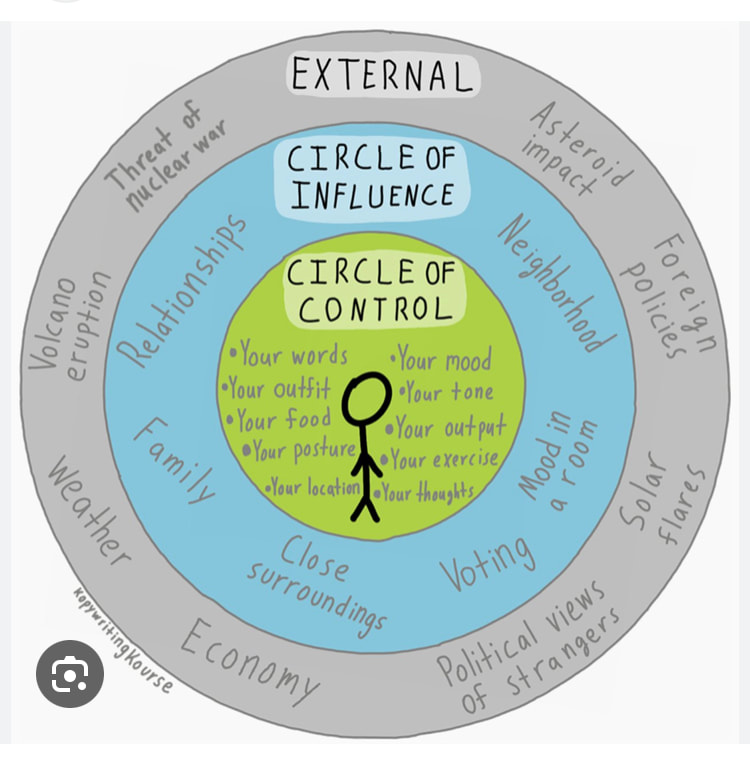


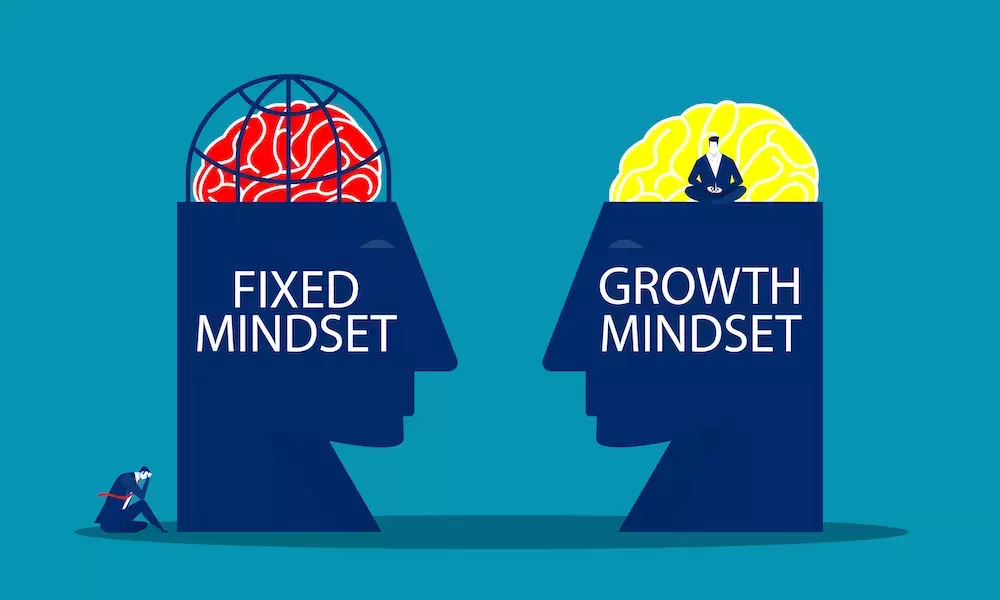

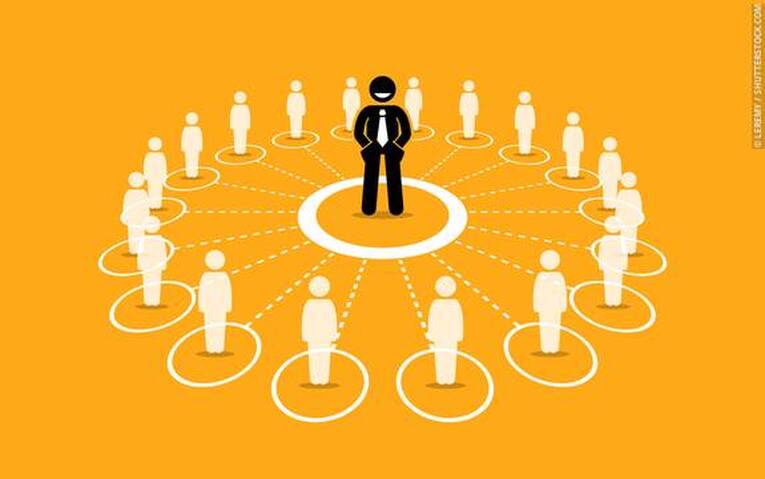
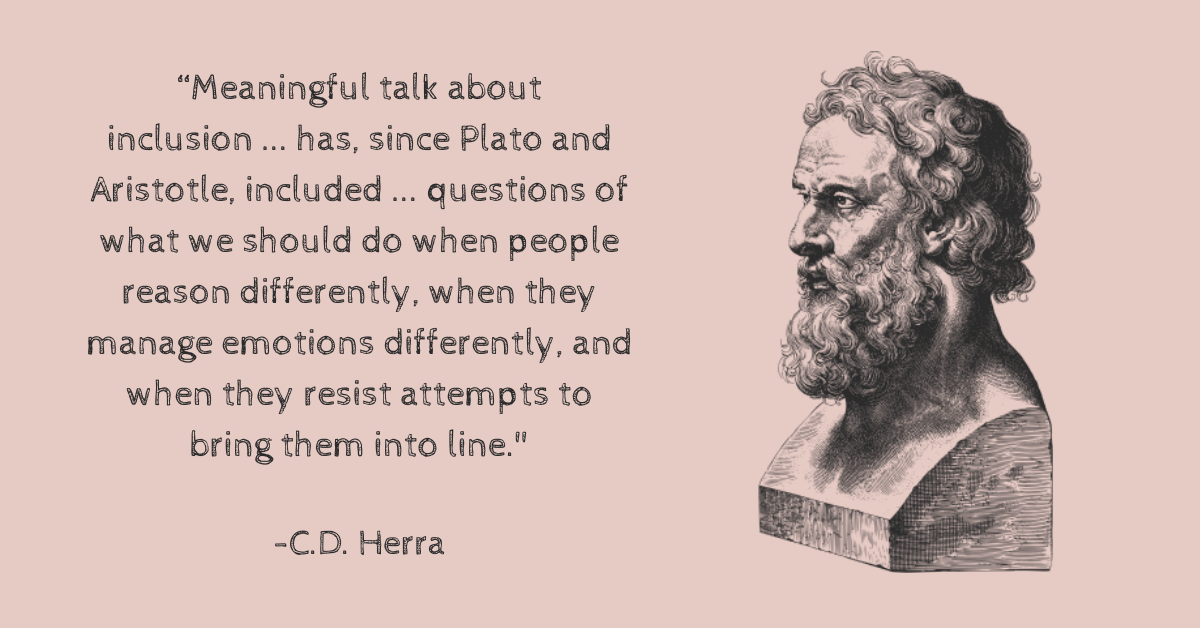
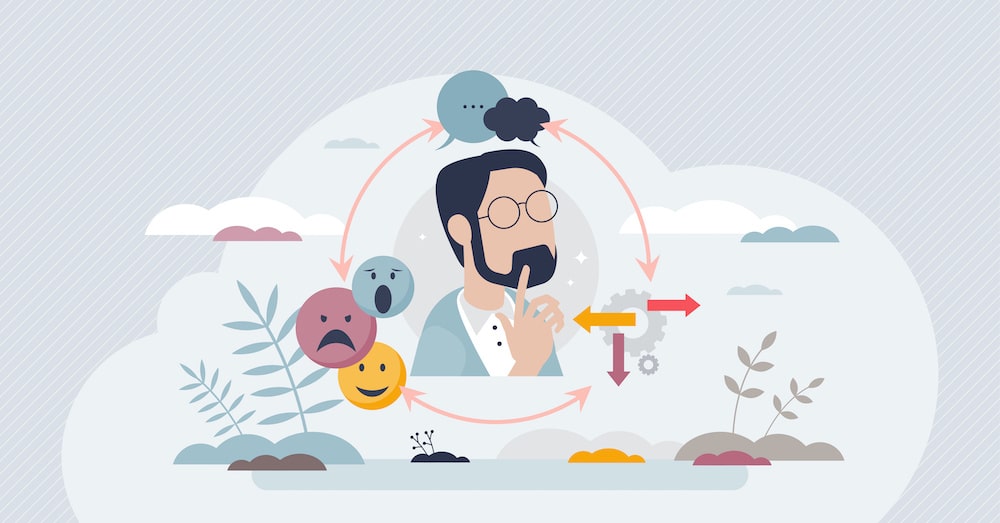







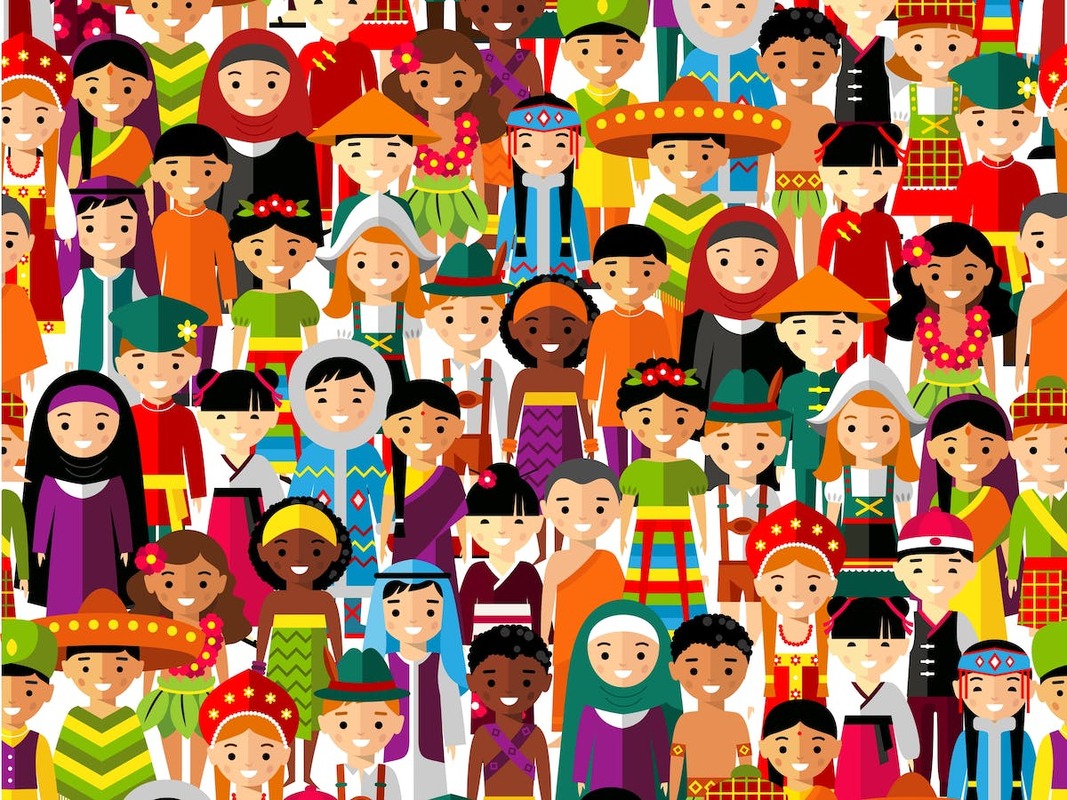


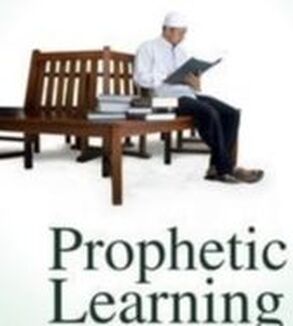

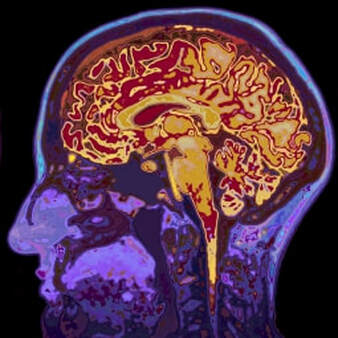
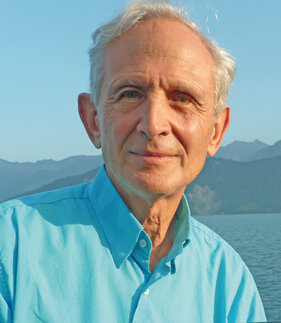

 RSS Feed
RSS Feed